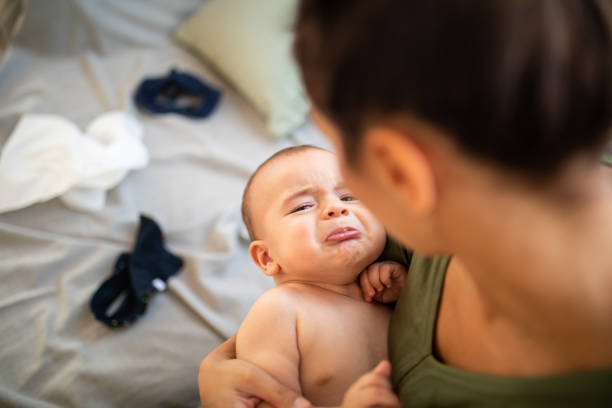
Concerning children, there are barely any absolutes. After all, no two infants are similar, and what works for one may not work for another. Yet, there is one thing all infants share for all intents and purposes, and that is a tendency to cry.
Read on to figure out Baby Wonderland's tips on how to unravel a child's cries, in addition to helpful tips for soothing those tears, and you may also check what are some ideas to care for your baby.
How To Calm A Baby From Crying
How to soothe a crying newborn at night and the degree of those little wails will obviously fluctuate from baby to baby, however, most inexperienced parents can hope to manage one to three hours of infant crying each day. With this, you can also check the best ways to care for your infant.
Why? Since it's a child's initial—and only—method of communicating their wants and needs. There may not be a Google Translate alternative to help sort out what a crying infant is attempting to let us know, however, there are some basic reasons why children cry.
Hungry Babies Can Result In Crying
Hunger is one of the most widely recognized reasons why your child will cry, particularly if she's an infant. The younger your infant is, the almost certain it is that she's hungry. Your child's stomach is little and can't hold very much. So it won't take time before she needs another feed.
In case you're breastfeeding, offer her your bosom, regardless of whether her last feed doesn't appear to be that long ago. This is called responsive feeding. Your infant will tell you when she's had enough, by coming off your bosom in her own time and appearing to be content and settled.
In case you're formula-feeding, your child may not require more milk for at least two hours after her last feed. Each child is different, however. If your infant is consistently not completing her feeds, she may like to drink formula little and frequently.
For this situation, you could have a go at offering her another feed earlier. Your infant may not quit crying quickly, however, let her continue feeding on the off chance that she wants to.
Your Child Might Be Fatigued And Need Rest
In contrast to most grown-ups, children who are exhausted or tired frequently turn fussy as opposed to floating off to sleep.
Probably the most ideal approach to urge sleep is to swaddle your infant. Wrap them cozily in a blanket with just the head and neck looking out. It helps emulate the mother's belly. A difference in view additionally may work in order to identify the reasons why baby is crying.
Take a stroll with a carriage. Or then again pack your infant in a vehicle seat: the calming vibration of the vehicle may get them to sleep.

Babies Can Cry From Boredom Or Overstimulation
Why do newborn babies cry so much? Normally not as noisy as other cries, and frequently staccato. Boredom can without much of a stretch change to chuckling; overstimulation can heighten to screeching.
An overstimulated child may turn his head away from you or other stimuli. He may angrily bat at an item.
On account of a bored child, defer your reaction by a couple of seconds or a minute. In the initial few weeks of life, your infant needs lots of attention— but that doesn't mean you should react instantly to each sound he makes. Remind yourself you're not being cruel or unsympathetic by overlooking boredom-induced infant cries; you're essentially establishing the framework for self-soothing.
On the off chance that your child is overstimulated, have a go at calming him with comforting noises, for example, a white noise apparatus, vacuum cleaner, or whirring fan.
Baby’s Cry Because Their Diaper Needs Changing
A few infants can sit in a wet or filthy diaper for quite a long time and as cool as a cucumber doing it. Others go crazy on the off chance that they're uncomfortable for over a second. (Would you be able to blame them truly?)
When babies cry a lot, take one moment to open up the diaper, and do a brisk check or perform a "sniff test." You can likewise settle on a diaper brand that accompanies a wetness indicator, similar to some diapers, which change shading when the diaper is wet. That way, you don't need to undress your infant each time you have to research whether that child crying is because of diaper distress.
This crying is likely just a phase. It is normal and it will pass. As your infant develops, she'll learn better approaches for communicating her needs to you. What's more, when this occurs, the extreme crying will, before long, stop. Think of it also as a technique to improve your connection to your baby.
Recent Comments